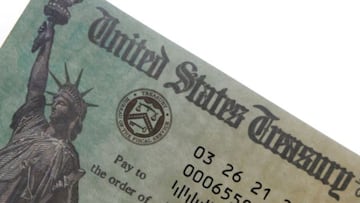IRS checks: what does tax refund 30 mean?
Some taxpayers are seeing something called “refund 30″ on their tax refund and curious what it means, not to fret, this is an internal IRS reference number.


Many scams on the internet involve sending checks claiming to be from the US Department of the Treasury. If you feel that you may have received the check by mistake or that it is a scam, it is best to contact the IRS to verify the validity of the payment. This can help to prevent identity theft and other types of fraud.
When looking for more information on this topic online, individuals should be aware of scams, viruses, and other malicious attempts to steal personal information. However, there is no need to subject yourself to these issues because the refund 30 status does not impact the funds distributed to the taxpayer.
In responding to questions from taxpayers, the tax software Turbo Tax stated that users should not worry if the bottom of their tax return reads “refund 30.” In a social media post, the organization said, “this may be a code for internal IRS use. For further information, please contact the IRS directly by visiting their contact page here.”
Did you know the #IRS has a #TaxSecurity Twitter handle to help you recognize and avoid scams? Follow @IRStaxsecurity to learn ways to protect your data. pic.twitter.com/0pP2VmkPlW
— IRSnews (@IRSnews) May 1, 2023
According to the IRS, the agency normally “initiates most contacts with taxpayers through regular mail delivered by the U.S. Postal Service.” Meaning that if you receive a check from the IRS or another government agency, it does not automatically mean it is fraudulent.
It should be noted that the IRS never uses “email, text messages or social media to discuss tax debts or refunds with taxpayers.”
How to report a scam to the IRS
If you believe that you may have been the victim of a scam wherein the scammer is using the IRS to collect information or funds, there are a few ways that it can be reported.
Related stories
The first is by visiting the “IRS Impersonation Scam Reporting” site, where a report can be submitted. For those who would like to file a report on a phone scam, one can be submitted through FTC Complaint Assistant, and the IRS advises that you “Add “IRS Telephone Scam” in the notes.”
Those who have received an e-mail posing as the IRS can send an e-mail to phishing@irs.gov.

